How to Be a Translator so You Can Work Remotely and Travel
The following article on how to be a translator is authored by Rhiannon Thatcher.
“¿Puedo usar una mantequilla, por favor?”
The woman behind the desk at the little Peruvian Internet café looked at me like I had three heads, nodded slowly and pointed me in the direction of a free computer.
The reason for her unease was because, with about as much confidence as a white man on Twitter, I’d just waltzed on in and asked her, in a room full of nothing but computers, if I could use “a butter”.
Internet cafes tend not to keep a stock of butter, Y’all!
It wasn’t until 3 weeks later when they were handing out tiny pots of butter with our meals on the plane that I realised my mistake, and it’s haunted me ever since.
Seriously, sometimes I have nightmares about that day, and I dream about the day I can walk right back into that little Internet café, jump onto a desk a la Tom Cruise and proudly announce that I can speak Spanish after all.
The irony is, the whole purpose of me using the Internet café in the first place was to check the status of my University applications to study how to become a translator.
Apparently, I was going to be a translator who doesn’t know the difference between a computer (una maquina) and butter (mantequilla).
Table of Contents
Why I Decided to Become a Translator
When I was a lot younger, my mother asked a question that really stirred something inside me.
“If you’re bilingual, what language do you dream in?”
The question completely stumped me, and I decided then that I wanted to find the answer to this question. To do that, I would need to study languages.
In Wales, it’s obligatory to learn Welsh until you’re 14, which is fantastic for preserving our heritage and culture, but outside of Wales and a tiny slither of Patagonia, the language is useless. I wanted to learn a language that would open more opportunities for me.
*Cue lots of late nights spent Googling how to be a translator.*

Subsequently, I ended up studying a BA in Translation at Swansea University, and I’m now fluent in Spanish and Italian (although the Italian is a bit rusty) and conversational in Catalan. I can also read and understand Portuguese and basic French and I have a pretty good vocabulary when it comes to shouting naughty words at rude men in Hindi and Malayalam, a skill that has come in handy while navigating the streets of India alone!
Since graduating in 2015, I’ve been travelling the world with nothing but my laptop and an unquenchable thirst for adventure. The longest trip I’ve taken so far was 9 months around the world, entirely funded by the money I was making online as I travelled.
Things to Know If You’re Thinking About Becoming a Translator
- The more languages you speak, the more valuable you are
This is something that was drilled into me from the moment I started my degree and began learning how to be a translator. In fact, it was deemed such an important factor that we weren’t even allowed on the course if we didn’t learn at least two languages in addition to English!
- “Rare” languages pay mega bucks!
In the world of translation, “rare” languages aren’t what you expect them to be. They’re not necessarily the languages on the brink of extinction, such as Aymara and Irish, but the ones nobody really learns as a second language, like Norwegian or Finnish. These typically pay a few cents more per word than the likes of French and Spanish.
- There’s a difference between translating and interpreting
To the untrained eye, it’s easy to think the words translator and interpreter can be used interchangeably, but that’s not the case. A translator interprets written text, while an interpreter translates the spoken word. So, when you say to your bilingual friend, “Hey, great, you can come and translate for me if I get arrested in Mexico,” unless you want them to write out the prison’s lunch menu in English, you’d be better off asking them to interpret.
How to Become a Translator
1. Learn a Second Language
Excuse the brief appearance by Captain Obvious, but the first thing you need to do to become a translator is, of course, to learn a second language.
This is easy enough for those of you blessed to come from a country with a big focus on language-learning. You may even have been brought up bilingual, but for anyone educated in the UK or the US, this is going to be one tough nut to crack.
If you didn’t learn a second language as part of your education but want to become a translator, there’s no time like the present, right?!
The most fun and effective way to learn a second language is by taking an immersion course in another country. Learn Italian while sipping Chianti in Tuscany, explore the wonders of Northern Peru as part of your Spanish course or even learn Arabic with a view of the Pyramids!
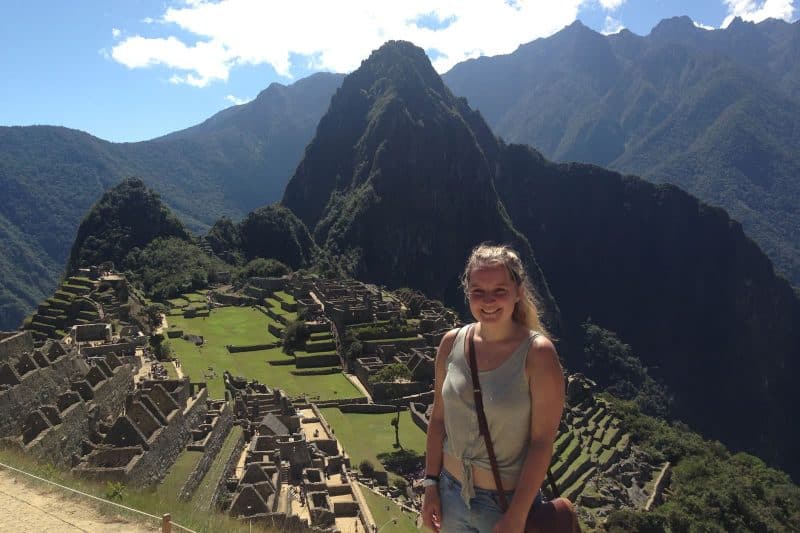
There are also numerous apps and home learning courses like Duolingo and Rosetta Stone that won’t make you fluent, but will undoubtedly give you an excellent start.
Unlock FREE Flights and Hotels!
Credit cards aren’t just for spending—they’re your ticket to epic travel rewards!
By using the right card for your everyday purchases, you could earn points for free flights, hotel stays, and more. No tricks, just smarter travel. Ready to see how?
2. Master Your Mother Tongue
The whole point of translation is to bridge a gap between two languages seamlessly. You want to convey the exact same point in your target language as was in the source language.
One mistake a lot of people make is they spend so much time and dedication learning a new language, that they accidentally let their mother tongue slip.
To become a translator, it’s not good enough just to be able to speak your language. You need to truly understand it and all its quirks.
There are some words and phrases in other languages that don’t have direct translations in English, so you need to somehow find the right way to convey the same meaning and the same emotion. This is not an easy job if you haven’t studied English (or your mother tongue if different) in-depth.
3. Get a Degree or Equivalent Qualification
Having a degree in Translation or a foreign language isn’t a pre-requisite for becoming a freelance translator.
I know plenty of people who make a decent wage working as a translator without any formal qualifications, but with the benefit of having been brought up in a bi- or trilingual household. This is definitely an option as a decent way of bringing a bit of pocket money while working other jobs, but if you really want to make a living as a freelance translator, you need to get the meaty jobs. And for that, you need a degree.
If you already have a degree in another discipline and don’t have 3 years of your life to dedicate to getting a second degree, a PostGrad Diploma or Master’s degree in Translation might be something to look into.
DIGITAL NOMAD TIP:
Not sure where to start with learning a new skill?
How about two FREE months where you have unlimited use of a library of information to get yourself the knowledge you need to succeed?
That’s what I thought! Click here and start learning on Skillshare (fo’ free!)
Otherwise, every country will have its own certification that you can take to become an “official” translator without needing to do any postgraduate study. In the US this is the American Translators Association’s exam and in the UK the Institute of Translation and Interpreting exam.
These exams aren’t essential for you to take to become a translator, but they can certainly help you gain credibility.
Want to Move Abroad?
But are totally helpless and don’t know where to start? Can’t figure out a clear path? Need to talk to someone who gets it? I’m here! Let’s chat and figure out your next steps…
4. Zone in on One or Two Specialities
You know how all doctors are fully trained in general medicine, but a lot of them also have specialities like pediatrics, obstetrics etc.? It’s the same with translation.
To become a successful translator, you need to have that one field that you’re an expert in, that you completely excel at and blow all the other translators out of the water. It’s all well and good saying you know the language so you can translate anything, but there are specific industries that definitely require specialist knowledge.
I mean, have you ever seen a legal contract?! It’s like Shakespearean English meets Latin meets something from outer space.
I have two specialities that I focus on, depending on which language I’m working in: tourism and medicine.
On paper, I wouldn’t be considered an expert in either field. I’m not medically trained, and aside from being a frequent tourist, I don’t have any official tourism experience. Fortunately, over the years I’ve gained enough experience translating medical reports and PR releases that I’ve earned my wings, so to speak.
When you’ve decided what field you want to specialise in, go out and try and get some relevant training or qualifications. It doesn’t matter if it’s something as simple as a creative writing course to aid you on your way to being a literary translator, every little extra piece of paper you collect will place you that one step higher on the podium.
5. Travel the World
If you want to know how to be a translator as a way for you to travel the world, you might be surprised to know that to become a good translator, it really helps if you’ve already travelled the world.
Or at least travelled where your languages are spoken!
This not only helps familiarise yourself with the culture but also colloquialisms and local slang that they tend not to teach in textbooks.
I learned most of my spoken Spanish in Peru, so when I talk not only do I do so with this weird little Welsh-Peruvian accent that makes my Spanish friends pee their pants with laughter, but I use vocabulary that isn’t standard in continental Spain.
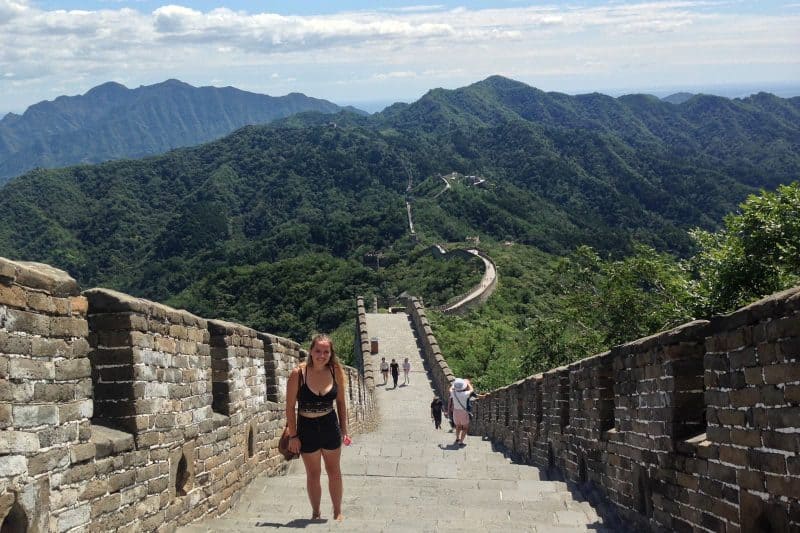
For example, in Peru and other parts of South and Central America, the word for car is carro. In Spain, they use coche for a typical, modern-day car and carro relates more to a four-wheeled horse cart. As you can imagine, this gained me a lot of funny looks when I asked my friend to bring the horse cart around in Granada, Spain!
It is certainly possible to be a translator without ever leaving your home city, but being well-travelled and experienced in different cultures gives you that extra edge.
6. Don’t Be Afraid to Diversify Your Income
Like any freelance work, a translator’s income can be very unpredictable! Some months you’ll be balling, making it rain Rolex watches and Cristal champagne. Other months you’ll be living on a permanent diet of instant noodles and the occasional fried egg for protein.
Unless you’re lucky enough to bag yourself a few steady clients each month, you’re going to want to diversify your income at least in the early days. As well as working as a freelance translator, I also do transcription work, editing, proofreading and localisation. I don’t have any specific qualifications for these roles, but they are all skills I picked up while working as a freelance translator.
Where Do I Find Freelance Translation Opportunities?
We’ve covered the basics on how to become a translator, but when that’s all said and done, how do you find translation work?
This is the part I struggled with when I was at University. Our lecturers were forever telling us how important it was to gain experience in advance of graduation, to better prepare ourselves for the “real world”, but they didn’t really go about explaining to us how to do that.
The focus was always on internships at translation agencies or getting a summer job at the Olympics (for real!). We were never told how to get experience when you don’t want to “go to work” in the typical sense of the word.
These are the best freelance translation resources out there that I’ve been using since day one:
Proz.com
This is the holy grail for all things freelance translation!
Proz is sort of like an online co-working space for translators. As well as providing loads of useful tips on how to become a translator, Proz also has translation dictionaries, courses on professional development, a forum for you to ask fellow translators for advice and, above all, a job board!
Clients will post their translations on the job board, detailing what is expected and what skills you’ll need, and each translator can “bid” for the job.
The best thing about Proz is that unlike other freelancer websites, its sole focus is translation. So, clients aren’t just after the lowest offer – they’ll also consider your experience and your worth before accepting or declining your bid.
It can be a little challenging to nab your first job on Proz without having any experience or testimonials, but as soon as you get your first one it’s smooth sailing from there!
The first job I got on Proz was straightforward – just a few hundred words about trees to be translated from Catalan to English. I bid low, as I was a total newbie, and was delighted when they awarded me the job! I built a relationship with that client, and now I get regular jobs from them, paid at a rate much higher than my original bid.
OneHourTranslation.com
There are a lot of online translation agencies out there that are perfect for freelance translators, but I find One Hour Translation to be the best by far.
Their price per word is a little lower than what it would be if you were working with a company directly, but for the convenience of being able to work from anywhere and get paid by Paypal whenever you choose, it’s worth it.
To sign up to One Hour Translation and other similar online translation agencies, as well as uploading your CV and relevant certificates, you’ll also need to pass a small translation test. This is a really simple test and nothing at all to worry about, just a few paragraphs usually taken from a newspaper or press release. It’s just to test your grammar and that you do know how to translate.
Brick and Mortar Translation Agencies
“Real” translation agencies don’t just hire in-house translators (those are the guys who go to the office every day and work set hours) but will also often outsource to freelance translators on their books.
It’s worth researching local translation agencies and sending your CV and cover letter in. Even if they don’t have any use for you there and then, they’ll likely keep your details on their books and let you know if they ever need you.
Freelancer Websites
The likes of Upwork, Fiverr and PeoplePerHour, will always have translation opportunities on there. The pay on these sites is typically very low, but if you’re travelling in a cheaper country, these are great resources to check for opportunities every now and again.
How to Be a Translator and Travel the World—The Logistics
Travelling the world as a translator isn’t as simple as just throwing your laptop on your back and waving goodbye as you jump in your cab to the airport. Boy, do I wish it was!
Like with most digital nomad jobs, there are a few basic things you need to ensure you’re able to work and travel. You know the deal – laptop, good WiFi, electricity etc., I won’t bore you with the specifics!

But there’s one thing you need to take into consideration when working as a freelance translator that isn’t always relevant to other remote jobs…
Time zones.
When you’re starting out as a freelance translator, you don’t have the luxury of picking and choosing which jobs you take on. You’re so hungry for any form of income that you’ll find yourself saying yes, yes, yes without stopping to think about the implications of what you’re doing.
You’ll find yourself accepting work from a company in LA with a deadline of 8pm EST, but you’re in Sydney, Australia, so end up having to work through the night to meet the deadline.
At one point I was working with a project manager in India on a job for a police station in New Jersey, US, translating a statement of a criminal whose lawyer was in Chicago. There were so many time zones involved that my head was spinning!
To be a freelance translator on the road you need to be more flexible than an Olympic gymnast, and just accept that for a while you’ll have to sacrifice things like a social life, eating and breathing to get a steady flow of work coming in.
But I can promise you, the short-term sacrifice will be more than worth the long-term gain!
DIGITAL NOMAD TIP:
Not sure where to start with learning a new skill?
How about two FREE months where you have unlimited use of a library of information to get yourself the knowledge you need to succeed?
That’s what I thought! Click here and start learning on Skillshare (fo’ free!)
Not to sound like a cheeseball but travelling as a freelance translator has completely changed my life. Being able to work from anywhere has enabled me to see more than 40 countries, and I’m currently living in New Zealand on a Working Holiday Visa without having to pick fruit! It really is like a dream come true.
And on that note, I still haven’t found out what language bilingual people dream in…
More Freelance Jobs
Would you love to become a translator so you can work remotely and travel? Let us know in the comments!
>>> Bio
Rhiannon Thatcher is a freelance translator who has been travelling the world mostly solo since 2011. Currently pet-sitting her way around New Zealand one cute doggo at a time, she shares useful travel tips like how not to get kidnapped or crap yourself on a volcano over on her blog Wales to Wherever.
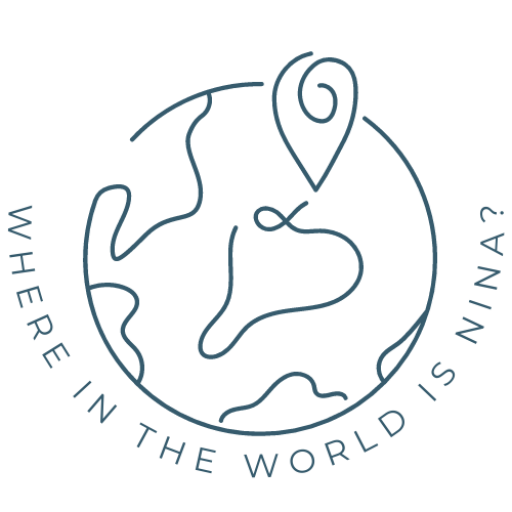
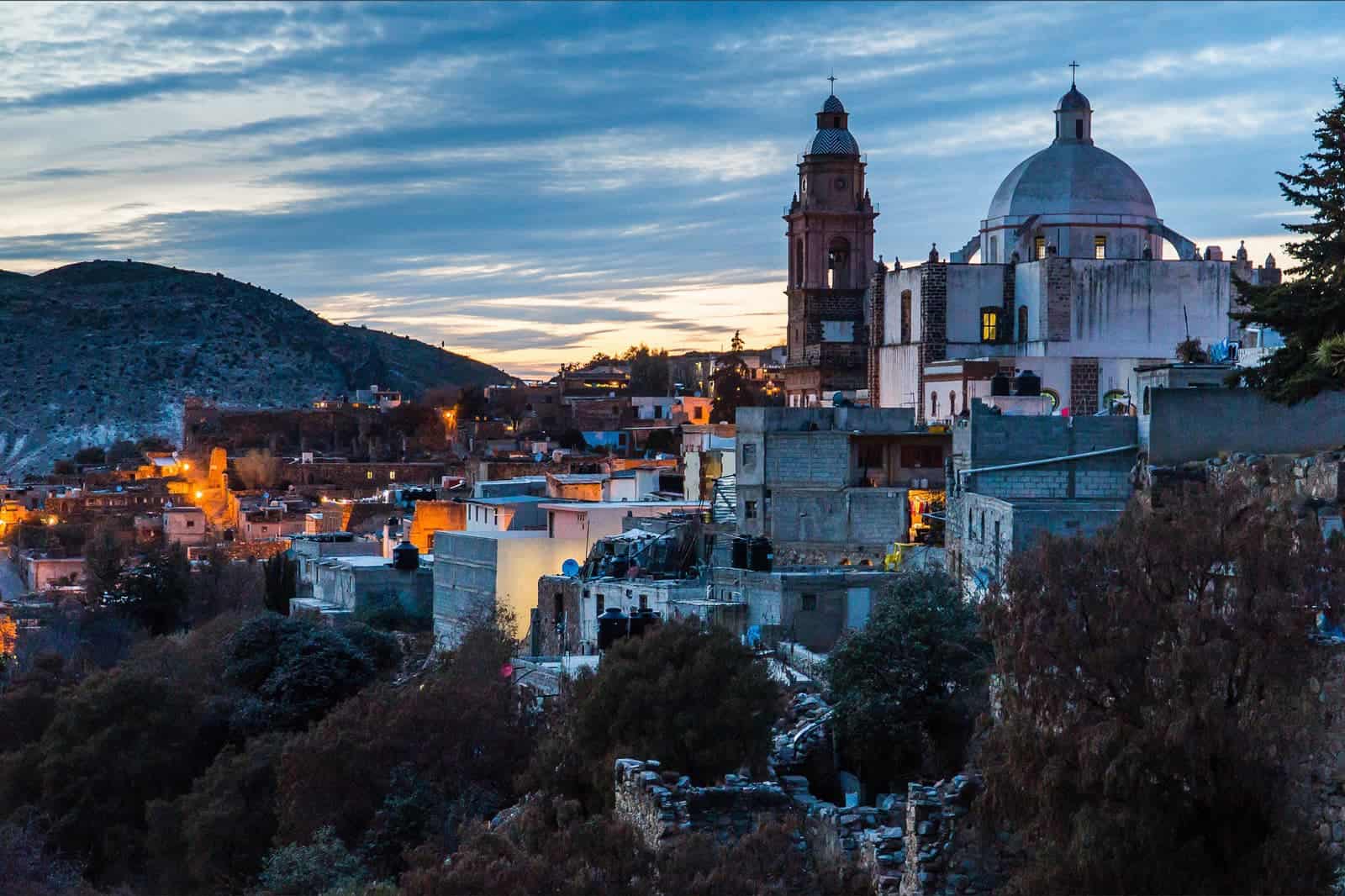


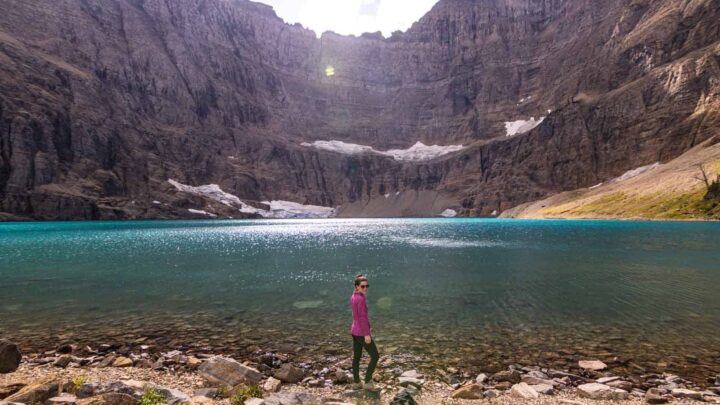



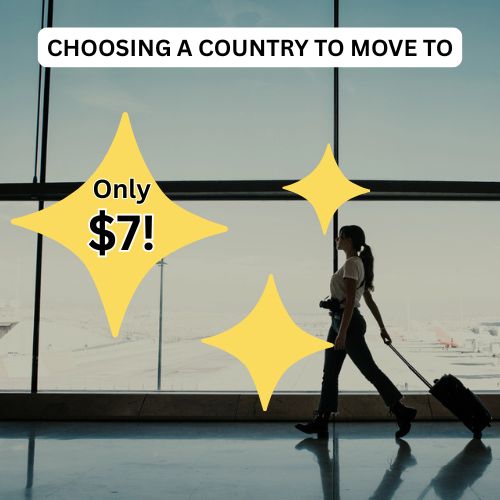
I’m interested to become a translator, I speak English, Hausa and arabic
Such a useful post – thank you